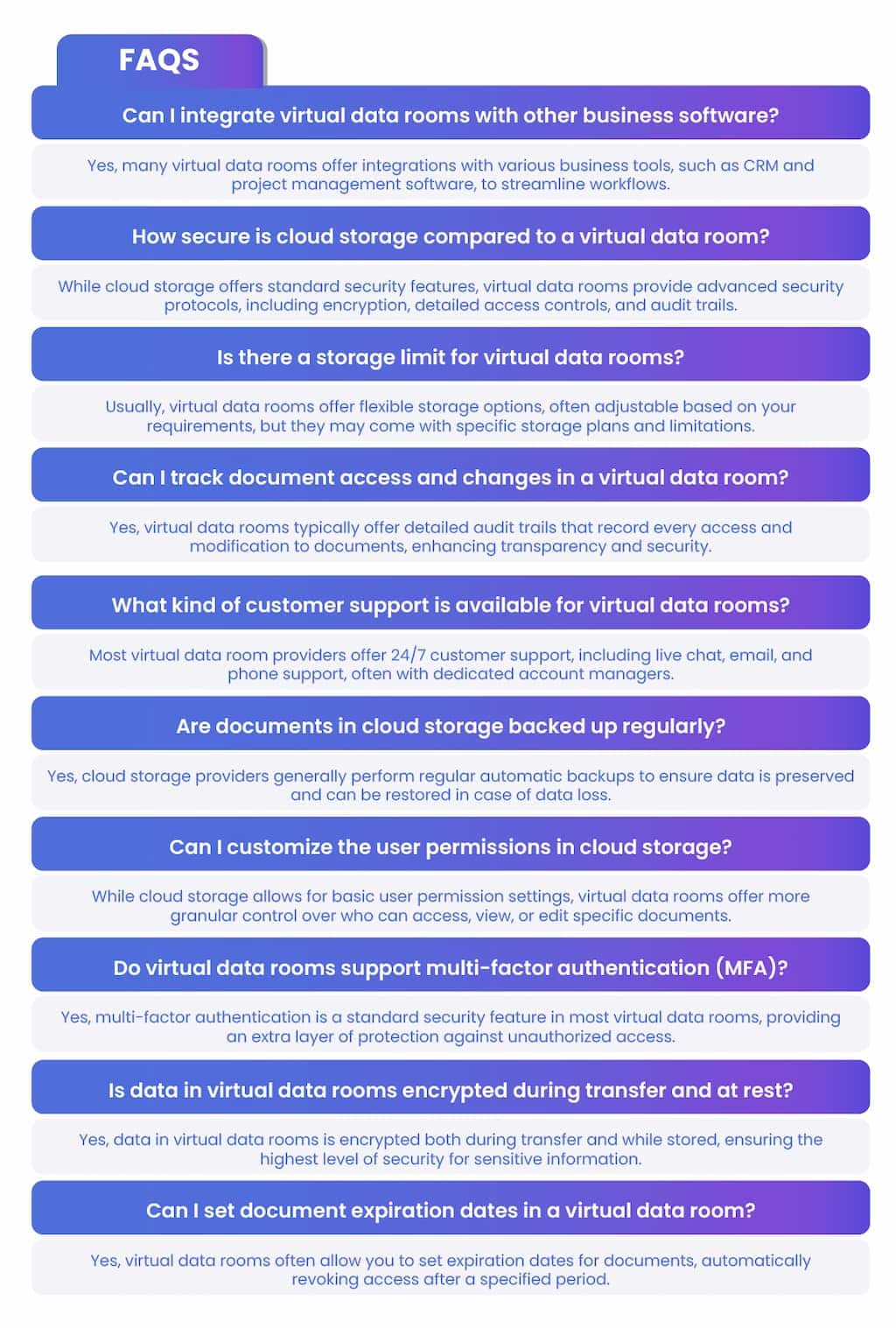Understanding Cloud Storage
Cloud storage essentially functions as a digital locker, allowing you to store and access files over the internet. Whether it’s photos, documents, or videos, your data is saved on remote servers, often referred to as “the cloud.” This means you can access your files from anywhere, as long as you have an internet connection.
Simplicity is one of the biggest advantages of cloud storage. Setting up an account typically takes just a few minutes, and managing files is straightforward with drag-and-drop functionality. Most services also offer automated backups, so you don’t have to worry about losing important data.
Another benefit is scalability. Cloud storage services are designed to easily accommodate growing amounts of data. If you need more storage space, you can usually upgrade to a higher tier plan without any hassle.
Security is a key consideration. Reputable cloud storage providers employ robust encryption methods to protect your data, both during transmission and while stored. However, it’s essential to choose a provider with strong security protocols to ensure your information remains safe.
Common examples of cloud storage services include Google Drive, Dropbox, and Microsoft OneDrive. These platforms offer a variety of features, such as file sharing, real-time collaboration tools, and integration with other software applications.
While cloud storage is incredibly convenient, it’s not without limitations. Potential downsides include dependency on internet connectivity and subscription costs, which can add up if you require substantial storage space or additional features.
Who Benefits Most from Cloud Storage?
Cloud storage has revolutionized the way individuals and businesses manage their data. It’s particularly advantageous for:
- Individuals: Whether you’re storing personal photos, videos, or important documents, cloud storage offers a secure and easily accessible solution. Services such as Google Drive, Dropbox, and iCloud provide ample space and seamless integration with other apps and devices.
- Small Businesses: Cloud storage is a cost-effective option for small businesses that need to store and share files without investing in expensive hardware. It also provides flexibility and scalability, allowing you to upgrade storage as your business grows.
- Remote Teams: For teams working remotely or in different locations, cloud storage is essential. It enables real-time collaboration and sharing of files, ensuring everyone has access to the latest versions of documents.
- Startups: Startups often require agility and rapid deployment of resources. Cloud storage facilitates this by offering quick access to storage and other cloud-based tools without the need for significant upfront investment.
The convenience, cost savings, and collaborative features make cloud storage an excellent choice for a wide range of users. Whether you’re an individual keeping precious memories safe, a small business enhancing operational efficiency, or a remote team staying connected, cloud storage provides a versatile solution to meet your needs.
Understanding Virtual Data Rooms
At its core, a Virtual Data Room (VDR) is a secure online repository used for storing and sharing sensitive documents. Unlike general cloud storage services, VDRs are designed with a high level of security and compliance in mind, catering especially to industries where confidentiality is paramount—think legal firms, real estate companies, and investment banks.
Features Tailored for Security: VDRs typically come equipped with advanced security measures like two-factor authentication, detailed access logs, and data encryption. These security features ensure that only authorized users can access the data, and every interaction with the files is meticulously tracked.
Granular Permissions: Another significant advantage is the ability to set granular permissions. You can control who sees what, when, and for how long. This level of control helps prevent unauthorized access and ensures sensitive information remains protected.
Efficiency and Collaboration: VDRs also excel in facilitating efficient collaboration. Imagine streamlining due diligence processes during mergers and acquisitions or easily coordinating between multiple stakeholders on a complex project. VDRs offer functionalities like real-time document editing, Q&A sections, and automatic notifications, making collaboration smoother and more efficient.
Compliance and Legal Standing: Many Virtual Data Rooms adhere to strict regulatory standards such as GDPR, HIPAA, and SOC 2, making them particularly attractive for industries bound by stringent compliance requirements. The high level of compliance helps in not just protecting data but also in maintaining the legal integrity of your operations.
Virtual Data Rooms, such as ShareVault, offer powerful features designed to streamline the secure sharing and management of sensitive information. One standout characteristic is their ability to integrate seamlessly with various cloud storage solutions. Thanks to advanced connectors, you can link your existing cloud storage platforms—like Google Drive, Dropbox, or OneDrive—directly with ShareVault.
This integration facilitates a unified, efficient workflow, allowing you to pull files from different cloud environments into your data room effortlessly. Whether you need to upload, organize, or analyze data, these connectors simplify the process, ensuring that your team can work more cohesively and productively.
Who Benefits Most from Virtual Data Rooms?
Virtual Data Rooms (VDRs) are incredibly valuable for professionals who need to manage vast amounts of sensitive information securely. If your work involves legal transactions, mergers and acquisitions (M&A), or you’re in the realm of venture capital, a VDR can be indispensable.
Imagine you’re a legal professional working on a high-stakes case. You need to ensure that every document is securely stored and easily accessible. VDRs offer features like granular access control, advanced encryption, and detailed activity tracking. This not only safeguards the data but also ensures that you can effortlessly audit who accessed what and when.
For businesses involved in M&A, time is often of the essence. A VDR simplifies the due diligence process by allowing multiple parties, such as investors and legal advisors, to access necessary documents securely and simultaneously. This accelerates decision-making, keeps the transaction process smooth, and helps maintain confidentiality throughout.
Startups and venture capitalists also stand to gain from using VDRs. When seeking funding, startups need to present a plethora of sensitive information to potential investors, from financial statements to intellectual property details. VDRs provide a secure environment to share this information, helping build investor trust and facilitating smoother negotiations.
In essence, if your work demands maintaining the confidentiality, security, and integrity of critical documents while ensuring easy access for authorized users, a Virtual Data Room is likely the perfect solution for you.
- Legal Firms and Legal Departments: VDRs are tailored for complex legal transactions such as mergers, acquisitions, and litigations. They offer secure document sharing and detailed audit trails.
- Investment Banks and Financial Institutions: These entities benefit from VDRs during due diligence processes, IPOs, and fundraising. The advanced security features ensure that sensitive financial data remains protected.
- Real Estate Companies: Managing property transactions and developments often involves a vast amount of confidential documentation. VDRs streamline this process with their organizational features and confidentiality controls.
- Corporate Executives and Board Members: High-level communications, strategic decisions, and the sharing of proprietary information happen within these secure environments, ensuring top-tier data protection.
- Biotech and Pharmaceutical Companies: When handling sensitive information related to drug trials, regulatory submissions, and intellectual property, VDRs provide the required security and controlled access.
Common Misconceptions Debunked
Many businesses assume that cloud storage and virtual data rooms (VDRs) serve the same purpose. While it’s true that both offer digital storage solutions, their functionalities and security measures significantly differ. Let’s debunk some of these common misconceptions to help you make a more informed decision.
First, while cloud storage solutions like Google Drive or Dropbox are ideal for general-purpose file storage, they may lack the specialized security and permission controls needed for handling sensitive documents. For example, a marketing team might use cloud storage to collaborate on a new ad campaign without worrying too much about stringent security protocols.
On the other hand, virtual data rooms are specifically designed for high-stakes transactions and secure document sharing. Think of mergers and acquisitions or legal due diligence processes where confidentiality is paramount. VDRs offer advanced encryption, detailed activity tracking, and the ability to set granular access permissions, features you won’t typically find in standard cloud storage platforms. This makes VDRs indispensable for industries dealing with highly sensitive information.
Another common misconception is that VDRs are overly complicated to use. While cloud storage systems are often lauded for their user-friendly interfaces, many modern VDRs have invested in making their platforms just as easy to navigate. From drag-and-drop file uploads to intuitive search functionalities, today’s VDRs aim to provide a seamless user experience without compromising on security.
Moreover, some businesses might believe that adopting a virtual data room is cost-prohibitive. However, the increased security, advanced features, and specialized customer support can offer a significant return on investment, particularly for projects requiring stringent confidentiality. In contrast, while cloud storage may seem like a more budget-friendly option upfront, the potential risks of data breaches could result in much higher long-term costs.
So, whether you’re managing everyday documents or overseeing critical transactions, it’s essential to understand that one size doesn’t fit all when it comes to digital storage solutions. By distinguishing between the functionalities and strengths of cloud storage and VDRs, you can choose the best tool to meet your specific business needs.
When should a business choose a virtual data room over cloud storage?
Choosing between a virtual data room and cloud storage depends on your business needs. When dealing with confidential documents, sensitive financial data, or during M&A transactions, a virtual data room offers enhanced security and compliance features that go beyond standard cloud storage solutions.
For everyday file sharing and collaboration, cloud storage is typically sufficient. Carefully assess the nature of your documents and the required level of security to make an informed decision.








